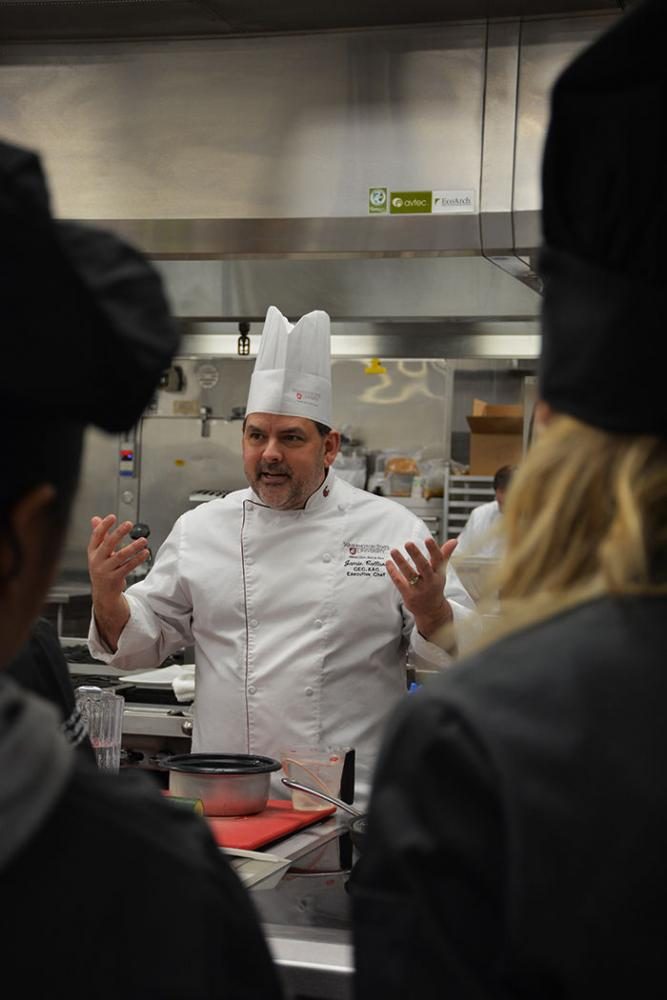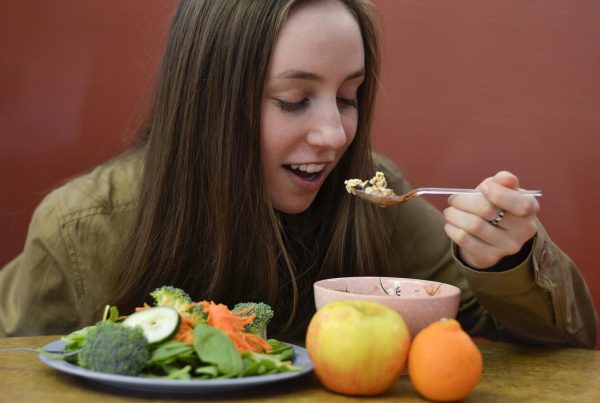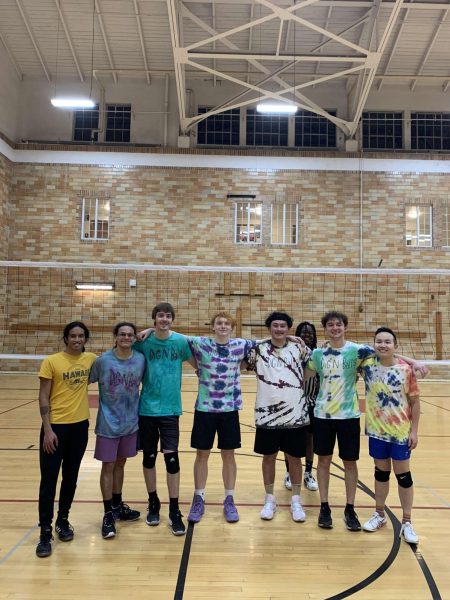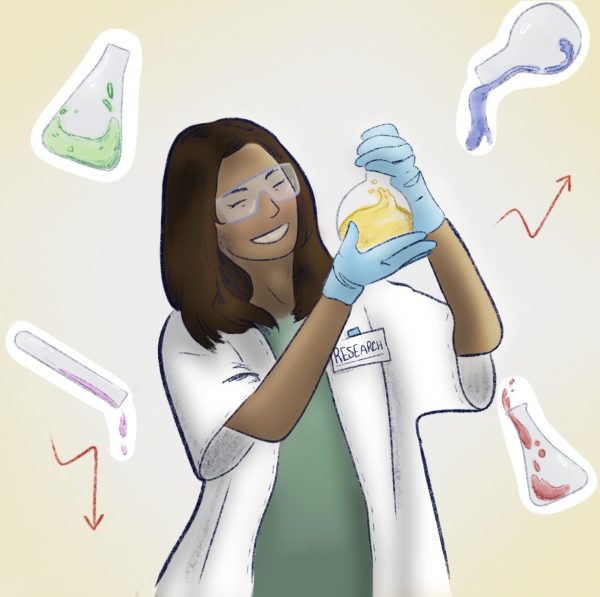Cooking up kitchen culture
February 13, 2017
The French phrase “Mise en place” means “everything in its place.” It is a mentality and notion of prepping and organizing food, kitchenware and everything else so the workday can be efficient and smooth. This is a foundation for anyone working in the hospitality industry, and the first thing Jamie Callison, the School of Hospitality Business Management executive chef, teaches his students in the Fundamentals of Cooking (HBM 258) class.
Chef Callison has played an integral part in shaping WSU’s culinary scene. After working as executive chef and dining director for Lakeside School in Seattle, he was asked to come work for WSU.
He started in dining services and helped open Northside as well as design Southside. A year later, he would become a culinary educator and executive chef for the School of Hospitality Business Management.
Even though his title includes the word “executive,” he doesn’t really see it that way and prefers to shine the light on his students.
“I don’t run the operations,” Callison said. “I oversee them and the students run it. It is the best job I’ve ever had.”
The class is an introduction to cooking. For hospitality students, it is an opportunity to gain an understanding of proper knife skills, kitchen flow, terminology and working in a commercial kitchen.
“I focus on the terminology,” Callison said. “Even if they don’t know what a hotel or sheet pan is, even if they aren’t going to be a chef, if they are working in the industry, they have to know those operational procedures and be ready to jump in and help with anything.”
Many of his students work in dining hall services, an area he very much admires.
{{tncms-asset app=”editorial” id=”699fa91c-f1b1-11e6-b9e8-43225a36ea5a”}}
“The dining services are trying to feed masses all with different backgrounds and preferences, and they have budget constraints, but as much as possible they use organics, cook things from scratch or are taking classes for better approaches to food,” Callison said. “I can do better. We can all strive to do better and dining services is always trying to improve. I have a lot of respect for them.”
I’ll admit, now that I live in an apartment and don’t have RDA, sometimes I miss dining hall services. Not everything they ever made was my favorite or as accurate as it could be, but I applaud the effort that they are trying and being considerate of the diversity of people and food perspectives we have.
It was always fun for me to help peers if they didn’t know what a certain dish was that the dining hall made. I loved explaining that the dining halls are taking inspiration from a particular country and encouraged them to try it.
Going out to eat or having access to dining hall services is wonderful, but I do encourage my peers to learn basic cooking. It is an essential skill in life in the same way one has to learn how to do laundry or pay taxes. You don’t have to be the next Gordon Ramsay, but knowing simple things like roasting, grilling and healthy eating matters. The class seems like a great chance at learning something so vital.
Chef Callison doesn’t just teach cooking, but an approach to food and life, too.
“I emphasize ‘mise en place,’ ” Callison said. “Many students say they wish they learned that earlier because that even helps them organize their homework and general lifestyle.”
The class covers other important topics like supporting local businesses, sustainability and healthy eating. These subjects that aren’t just practiced in the classroom, but heavily applied outside it.
He tries to buy local cattle, grains and produce whenever he can, but it typically costs him 60 percent or more compared to buying from the mainstream producers, he said.
With foods like WSU honey, WSU sausage, Ferdinand’s creamery and constant research with animal, agriculture and food science, Callison considers the Palouse a chef’s playground.
“We work with the agricultural, engineering, business, marketing, animal science and food science departments to bring it all together. It is about the students and WSU,” Callison said. “I’m proud of my position with the School of Hospitality, but my goal here is showcasing the entire university to our diners and people that visit.”
The immersive quality Callison envisions bringing to WSU is without borders. He leads a food and wine study abroad trip to Italy and, this year, France too.
“My philosophy is the cultural side of studying abroad,” Callison said. “You can learn about food and wine here, but when you are traveling, it is important for students to interact with the locals, eat their food or live in an apartment with their Italian neighbors.”
It is a privilege getting to travel. A trip to Peru had an eye-opening experience for me. I was at a local food market and purposely got lost because I wanted to explore. I encountered an old woman making chicken noodle soup. This was her livelihood. I was simply watching and not particularly hungry. She motioned for me to sit down and she cooked me a bowl of soup. I tried to pay her and she wouldn’t let me.
Whether it is starting with local ingredients or eating local food, the most important thing is the people. This is something that can be seen clearly here at WSU and something Callison highlights so well.
Every passionate food person at WSU and in the surrounding communities has a place here and has something to offer. Every person and resource is in its place. It’s “mise en place.” It is then just a matter of having the desire to learn about those people.
Then take those gifts of food and learn to cook with them. It can all start with Fundamentals of Cooking and Chef Callison.






















